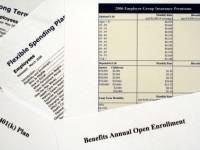Recently we discussed whether directors of public companies face potential liability for not preventing cyber attacks. As we discussed, the answer is generally no, because absent allegations to show a director had a “conscious disregard” for her responsibilities, directors do not breach their fiduciary duties by failing to properly manage and oversee the company.
That well-established rule was again affirmed last week by the Delaware Court of Chancery in In re China Automotive Systems Inc. Derivative Litigation, a case that concerned an accounting restatement by a Chinese automotive parts company. Plaintiffs there alleged that the company’s directors breached their fiduciary duties by failing to manage and oversee the company’s accounting practices and the company’s auditors, who improperly accounted for certain convertible notes from 2009 to 2012. When the error was uncovered, the company restated its financials for two years and its stock price dropped by 15%. READ MORE










